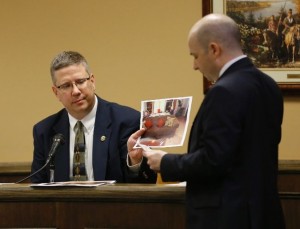During last year’s NFL playoff’s Dallas Cowboy’s wide receiver Dez Bryant caught the ball at the one yard line but the call was challenged by the Green Bay Packers coach. The referee’s and eventually the NFL said Bryant didn’t maintain possession of the ball. As a Cowboy’s fan, this seemed like and was obviously the wrong call. As the Green Bay fan, it would have seemed like the right call to be made. All saw the same play and the same replay yet their individual bias’s made each of us believe two completely different things occurred. With this being said, many people can see the same event occur (i.e. a traffic accident, incident or a crime that occurs withing seconds), yet interpret and believe differently. Even more common as time passes and witnesses hear different information both wrong and wright there memory adapts and includes the information the witness obtains after the fact.
As a general rule, prosecutors, police, civil attorneys, and juries, will rely on eye witness testimony over facts proven by solid physical and forensic evidence. This leaves a large a margin for error in determining non-biased facts.
Over the past 25 years of Joey Stidham’s experience as a police officer, private investigator, and a traffic re-constructionist, have brought him to question eye witness testimony. Eyewitness testimony is the most unreliable evidence that there is. There are many issues that play into the unreliability of eyewitness events every individual’s own health, vision, hearing, attention, personal race, religion, life experiences, bias’s etc.
When you have issues with eyewitness and need to know the accuracy of their information we are here to help.









